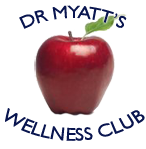Urinary Tract Infections (UTI's)
Natural Ways to Overcome UTI's
Urinary tract infections (UTI) are a common and uncomfortable condition that affects some 50 percent of all women and girls (and a lesser number of men and boys) over the course of a lifetime. UTIs account for 10 million doctor visits annually. Some people appear to be more susceptible than others. For example, women who experience one UTI are more likely to have recurrences from time to time.
Urinary tract infections can range from annoying to life-threatening. When confined to the bladder, most UTI's are merely uncomfortable but can sometimes be downright painful. If bacteria ascends to the kidneys, serious kidney damage and even kidney failure can result.
Urinary Tract Terminology
When an infection involves only the urethra, the condition is called "urethritis." When the bladder is involved, the condition is called "cystitis." When the infection back all the way up to the kidneys, it is called “nephritis” or "pyelonephritis."
Causes of UTI's
Ninety percent (90%) of all UTI's are caused by E. coli bacteria. E. coli is the most common "friendly" bacteria in the colon (large intestine). As long as it stays in the gut, things are fine. When e.coli bacteria make their way into the urinary tract, they can cause an infection. The remaining 10% of UTI's are caused by other types of microbes including Chlamydia, Mycoplasma, Neisseria gonorrhoreae, and others. These type of "bugs" are typically spread by sexual contact and can cause the more serious types of infection.
Most bacteria that find a way into the urinary tract (as can occur during sexual intercourse) are simply washed out with the urine. E. coli can "grab" onto cells that line the urinary track by binding to a sugar-like molecule found on normal urinary tract cells.
Conventional Medical Treatment of UTI's
Conventional medicine uses antibiotics to treat UTI's, period. Antibiotics can be highly effective at knocking down a UTI, but there are numerous drawbacks.
Antibiotics not only kill bacteria in the urinary tract, but they can kill a lot of "friendly bacteria" in the gut as well. Destruction of protective GI bacteria can lead to yeast infections or worse, can allow "unfriendly" strains of bacteria to colonize the gut.
Disturbing the normal gut flora often leads to a secondary vaginal yeast infection. Many women who take antibiotics for UTI simply come to expect that they will have a vaginal yeast infection (requiring a second medication of an anti-fungal) for treatment.
Bacteria can become resistant to antibiotics. Not only can the antibiotic stop working (or become less effective) for treating the UTI, but antibiotics can become less effective for treating infections elsewhere in the body. Remember, overuse of antibiotics is the most common cause of "Super Bugs"--- bacteria that do not respond to any known antibiotic.
Antibiotics can sometimes cause life-threatening allergic reactions. Other reactions to antibiotics include diarrhea or constipation, nausea, and sometimes vomiting. An estimated 25% of people who receive an antibiotic will develop a secondary gut infection of an organism called C. difficile.
Alternative Treatments for UTI
Most cases of UTI can be successfully treated without antibiotics. Because of the many drawbacks of antibiotics, I always prefer to try natural options first. Results are usually seen within 24 hours, so it is easy to tell if the natural treatment is working.
D-mannose is a sugar molecule and close cousin of glucose. Many alternative physicians have found that it can cure 90 percent of all UTIs within 1 to 2 days. Because D-mannose works by preventing bacteria from sticking to the lining of the urinary tract and not by direct antibiotic action, it does not have any of the potential for negative side-effects like antibiotics so.
D-mannose tastes good (because it is related to the sugar molecule, although it does not raise blood sugar levels). It is so safe that it can be used by pregnant women and young children. It is also one of the few "medicines" that children actually enjoy taking!
Although D-mannose is virtually unknown to conventional medical doctors, many research reports have proven its mode of action and effectiveness against E. coli, the microorganism that causes 90% of all UTIs. Moreover, nearly 15 years of clinical experience has also shown that it is just almost as effective at curing UTIs as antibiotic drugs but without any of the negative side-effects.







